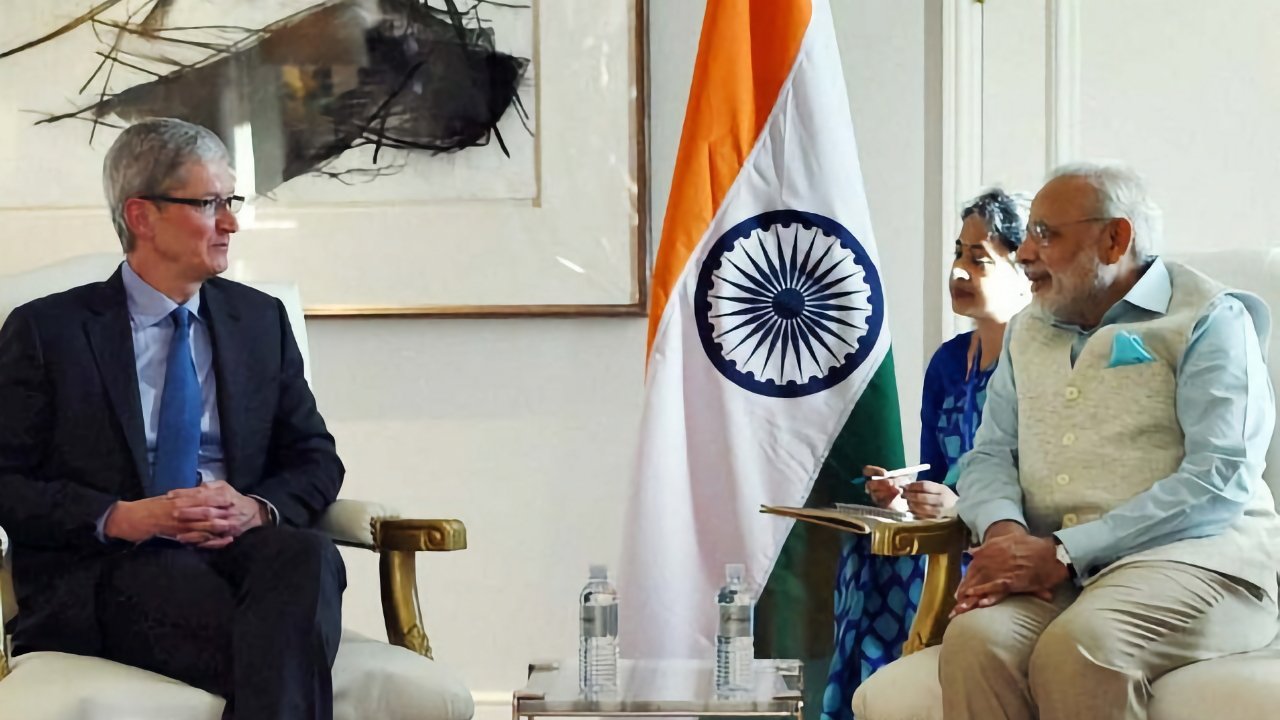Tim Cook (left) and Prime Minister Narendra Modi at an earlier meeting

While it's not completely clear what the specific topics of discussion will be, Apple CEO Tim Cook is attending a White House dinner on Thursday night with visiting India Prime Minister Narendra Modi, and then the pair will meet again on Friday.
The dinner, hosted by President Joe Biden and First Lady Jill Biden will take place on Thursday evening. The state dinner and week-long meetings with US business and Modi is considered by India to be a coup in relationships, with a great deal of press attention focuses on the wheeling and dealing taking place.
Cook has not yet met with Modi on this trip. However, other deals struck so far include a new Micron chip plant in India, and a series of production deals with GE.
Beyond Cook, other CEOs expected to be in attendance include:
- Anthony Capuano - Mariott
- Larry Culp - GE
- Sanjay Mehrotra - Micron
- Satya Nadella - Microsoft
- Sundar Pichai - Google
- Chuck Robbins - Cisco
- Raj Subramaniam - Fedex
- Anthony Capuano - Mariott
- Larry Culp - GE
CNBC also notes that there will be a series of separate meetings with tech heads and Modi on Friday. That discussion is suspected to center on shifting manufacturing away from China, and into India.
The state dinner is just days after US Secretary of State Antony Blinker met with China's President Xi Jinping on Monday.
Cook and Modi first met in 2015 as Prime Minister Modi was touring the US west coast. A year later Cook visited him in India.
In each case, it's believed that the Indian prime minster wanted Apple to invest in his country. That's now paying off with both retail stores and increased manufacturing.
Cook also reportedly met with Modi, and India's deputy IT minister, Rajeev Chandrasekhar, between the openings of Apple BKC in Mumbai, and the opening of Apple Saket in New Delhi.
Thursday's meeting also comes in the wake of Apple and Foxconn lobbying India to revise its labor laws. The two companies have already succeeded in persuading the authorities in one region to allow factories to double production by running 24-hours.